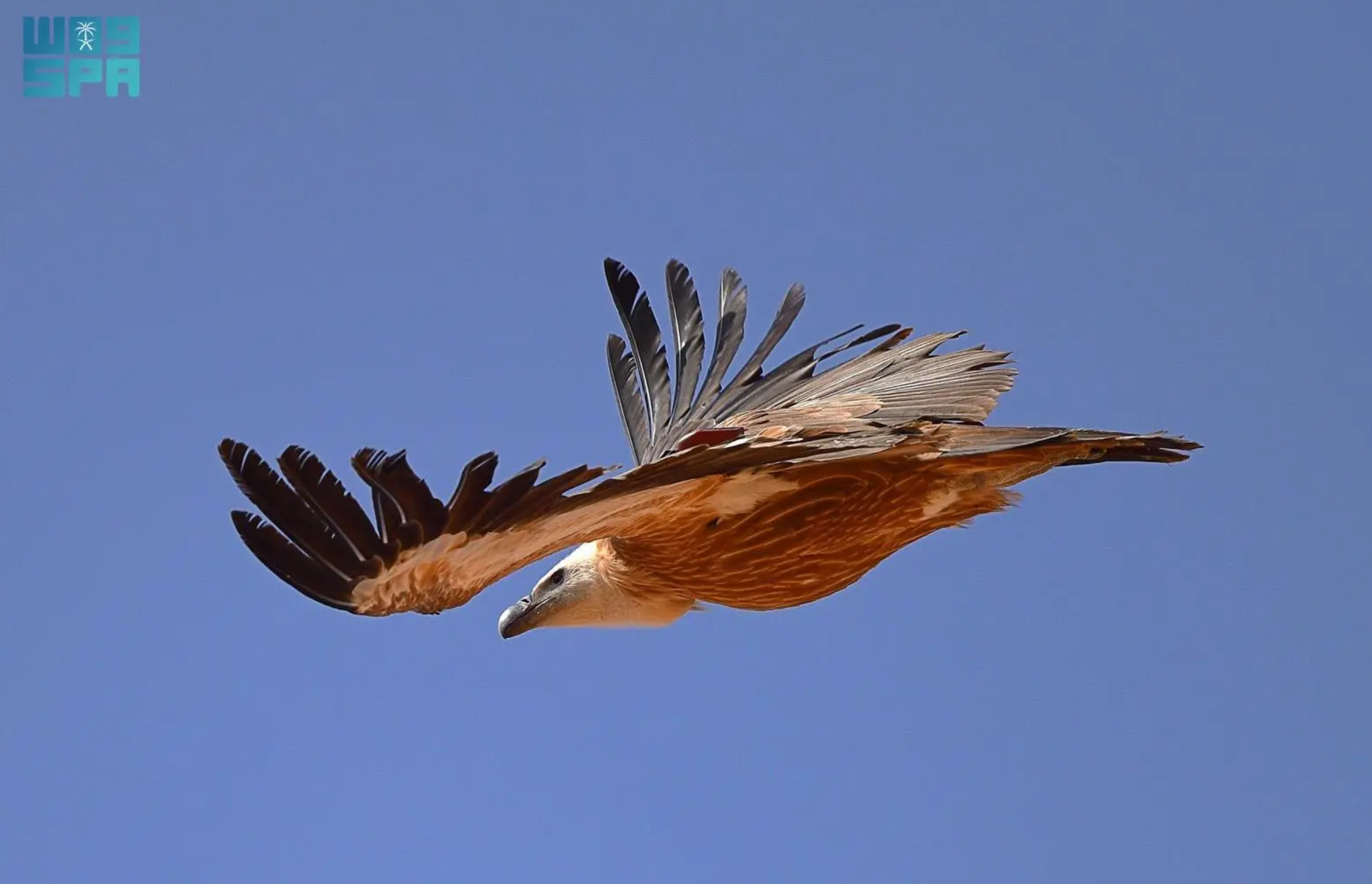
Prince Mohammed bin Salman Royal Reserve Development Authority Discovers Endangered Vulture Breeding Colonies
Prince Mohammed bin Salman Royal Reserve Development Authority announces the rare discovery of three breeding colonies of Eurasian Griffon vultures on World Vulture Awareness Day. The Griffon vulture is listed as endangered in the Middle East.
In a press release today, the Griffon vulture and vultures globally face a serious conservation crisis. Acting as nature's clean-up crew, vultures are essential to maintaining healthy ecosystems and preventing disease outbreaks.
Andrew Zaloumis, CEO of Prince Mohammed bin Salman Royal Reserve Development Authority, stated: "The endangered Griffon vulture is an uncommon breeding resident in Saudi Arabia. Reserve scientists have discovered four active nests with adults incubating eggs and raising chicks using drones and are closely monitoring them.
Griffon vultures are a significant indicator of the reserve's improving environmental health. These breeding colonies are a testament to the reserve's conservation work and role as a sanctuary for Saudi Arabia's natural heritage."
Under the reserve's recently launched Integrated Development Management Plan, vulture breeding colonies are afforded the highest level of protection. The 24,500 km² Prince Mohammed bin Salman Royal Reserve stretches from the lava plains of the Harrat Rahat volcanic fields to the deep Red Sea in the west and is home to 15 distinct ecosystems and over 50% of the Kingdom's species, making it one of the most biodiverse protected areas in the Middle East.
Individual Griffon vultures have previously been recorded roosting throughout the reserve's mountain ranges, however this is the first time breeding colonies with nesting sites have been confirmed. Four active nests in three separate breeding colonies with adults incubating eggs and chicks approximately two to three months of age were discovered in the sandstone mountains of the Jabel Qaraqir section of the reserve. A further 37 potential nesting sites are also being monitored.
In 2023, two Griffon vultures were tagged and released into the reserve in a joint initiative with the National Centre for Wildlife. Griffon vultures coexist with other predators, such as wolves and hyenas, who play an essential role in vultures' ability to feed. The absence of predators and the widespread poisoning of vultures in many parts of the world results in few reaching breeding maturity. Building awareness of this wonder of nature that is responsible for supporting ecosystems' health and keeping diseases in check is essential for the conservation of the species.
The reserve's restoration and rewilding initiative is reestablishing safe vulture habitats and reintroducing prey species, and the recently discovered nests will continue to be monitored. At a local level, this is supported by the reserve-wide school's education and community outreach programmes.
About Prince Mohammed bin Salman Royal Reserve:
One of eight royal reserves, the 24,500 km² Prince Mohammed bin Salman Royal Reserve stretches from the lava plains of the Harrats to the deep Red Sea in the west, connecting NEOM, the Red Sea Project, and AlUla. It is home to PIF's Wadi Al Disah project and Red Sea Global's Amaala.
The reserve encompasses 15 distinct ecosystems. Although it covers just 1% of the Kingdom's terrestrial area and 1.8% of its marine area, it boasts over 50% of its species, making it one of the most biodiverse protected areas in the Middle East.
The reserve is committed to restoring and conserving the natural and cultural environment. This includes the reintroduction of 23 historically occurring native species, including the Arabian leopard, cheetah, Arabian oryx, and Lappet-faced vulture, as part of a wide-ranging rewilding program.
Prince Mohammed bin Salman Royal Reserve is one of eight royal reserves established by royal decree and overseen by the Royal Reserves Council chaired by His Royal Highness the Crown Prince. The reserves programme is integrated with Saudi Arabia's broader sustainability and conservation programs, including the Saudi Green and Middle East Green Initiatives.








